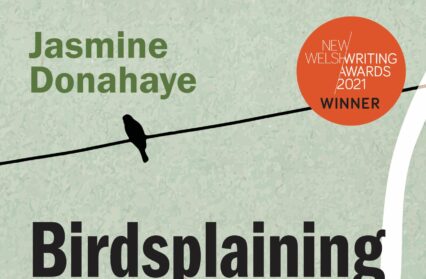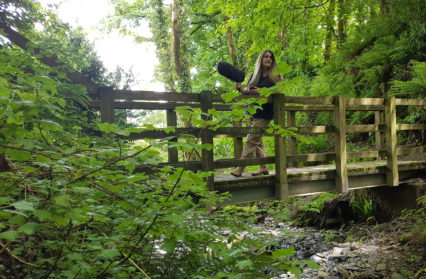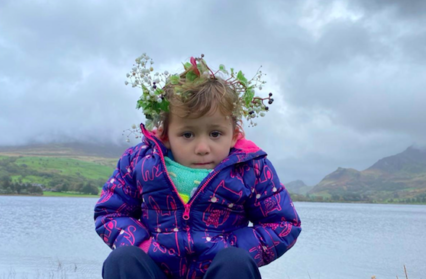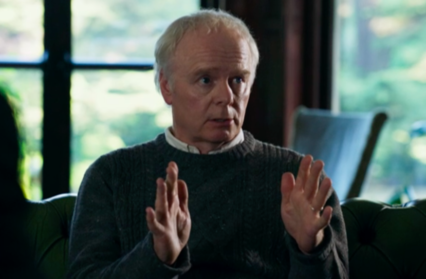AberInnovation provides top expertise in the areas of biotechnology, agri-tech, and food security. With world-leading facilities, they aid the collaboration between industry and academia that is so essential to expanding green innovation globally. Caragh Medlicott spoke with AberInnovation’s CEO, Dr Rhian Hayward MBE, to hear how their work is helping to foster a circular economy in Wales and beyond.
Caragh Medlicott: Can you explain a little bit about what AberInnovation does, and how it’s helping to foster green innovation in Wales through its accelerator programmes?
Dr Rhian Hayward: We are a brand new research and development facility, co-located with Aberystwyth University. Our site is a couple of miles inland from Aberystwyth and one of the reasons why the university decided to put this new set of facilities at this location is because they’ve been breeding crops on this site for over 100 years. It’s a research intensive application – a lot of that work is done in collaboration with industry so it made sense to build more facilities that foster that. The facilities themselves are designed as the sort of next step; after you’ve done basic research, then we’ve got the pilot facilities to allow companies to work with university experts on the topics of food security and climate change.
In a nutshell, we’ve built a new biorefining centre, a brand new future food centre, and then an advanced analysis centre that sort of ties the two together. The technical facilities allow companies to explore some really innovative things with us – like how we can get value out of waste streams through the byproducts created. These are things which would, otherwise, be thrown away – but a lot of these chemicals actually have value so obviously it makes a lot of sense from an environmental standpoint to use them. That’s what helps us move towards a more circular economy.
Caragh Medlicott: What challenges have you faced during the pandemic, and has it changed the way you and the companies you incubate work?
Dr Rhian Hayward: Through the pandemic, whilst individual small businesses have absolutely had their challenges, in general, for us, we’ve actually seen an increase in our innovation. There are more entrepreneurs wanting to start businesses in the areas of food security and climate change, and increased approaches from businesses that want to be co-located together as a group. It’s a very attractive prospect for small businesses, companies that are just starting out, to be around like-minded individuals. So for us, in that way, we haven’t seen a dramatic negative effect from the pandemic – thank goodness! And there’s certainly been an interesting uplift in individuals and companies in this part of the world who have a key focus on sustainability and protecting the environment.
Caragh Medlicott: What are some of the key tenets of green innovation, and do you think sustainability and green-minded solutions of the kind you’ve been talking about are going to play an important role in addressing the current climate crisis, as well as associated issues like food security?
Dr Rhian Hayward: The principles of green innovation refer, at the very highest level, to any sort of product, service or process that would reduce further deterioration of the environment. Ideally, at the same time, they look to reduce their own impact. You know, this could be through better use of natural resources to avoid creating harm in the first place. So those are the guiding principles, really. I suppose underneath that, there’s a whole bunch of stuff which can get quite detailed. So where we come from with our standpoint of working with scientists, and technologists in the STEM subjects – whether you’re a chemist or an engineer, or a biologist – there are a whole series of principles you can use to shape your innovation in the green space.
The next level will be things like waste reduction, pollution prevention, using whole life cycle thinking. There are also things like energy inputs and outputs. And then context, too. So when you think about innovation that context is inseparable. For example, in rural Mid Wales, where we are, a lot of our collaborative industry partners are thinking about this specific geography and how they can make products or services that address this area. The challenges are very different to, say, an urban environment, where the context and the solutions you need to provide are potentially quite different.
Caragh Medlicott: Do you think, then, that the private sector has an important part to play in moving towards a more sustainable future in Wales and around the rest of the world?
Dr Rhian Hayward: At AberInnovation we have one foot in the academic world and another foot in the private sector, in industry. Our role is really understanding what companies need from academic expertise in order to move their product development forward. So, from our standpoint, it’s key that the private sector has an appetite to innovate in an environmentally friendly way, because without that, nothing will get to the market. Really that’s the true and realistic route to green innovation and all universities now understand that. That’s why we want to share our academic research outcomes with industry and collaborate with them in order to facilitate both economic impact and address societal and even political issues. In the whole of my career I’ve never seen as much harmony between academic institutions and industry as there is today.
Caragh Medlicott: I guess industry, in general, is more responsive to environmental issues than it was, say, ten years ago?
Dr Rhian Hayward: Yeah, so, my observation would be that there are a growing number of environmentally conscious entrepreneurs. People who want to start businesses and grow quickly and work in areas that can make a positive difference. So there’s that. But also, in our political landscape, we’ve got a key piece of legislation with Wales’ Wellbeing of Future Generations Act. There’s both the hunger from the entrepreneurs and a clear mandate in legislation form from the devolved government. There’s that encouragement for companies to act in certain ways, to work holistically in ways that can help all of Wales. So I see both these things happening, and ten years ago we didn’t have that act.
Caragh Medlicott: I know that your flagship accelerator, BioAccelerate, has been incubating some bioscience companies working in the area of green innovation – could you detail the work of some of these companies and explain a little more about what they’re doing?
Dr Rhian Hayward: Oh, sure. We’ve run our investor readiness programme for a few years now. We’ve got an alumni of about 40 companies that have been through that scheme and they are all operating in areas like food biorefining or health and a couple of other areas. There’s an Aberystwyth University spin-out company called ARCITEKBio ltd and they came up with a process for extracting xylitol, which is a natural sweetener from agricultural straw – which is a waste stream. That’s a good example of the kind of companies that come from our investor readiness programme, ones that are looking at the circular economy, they’re looking at getting value from waste. Also, crucially, in this case, xylitol, as I understand it, demand currently outstrips supply globally. It also has potential health benefits, especially with conditions like diabetes. So it’s a natural way of extracting a substance that would otherwise be created synthetically. That’s why what ARCITEKBio are doing makes environmental and economic sense.
And for another example, this year, we had a company who were one of the eventual winners of a financial grant prize – a company called PlantSea, so they are three Aberystwyth university graduates who have come together and started this graduate start-up company. And they are developing a process of turning seaweed into a material for packaging. It’s environmentally very low impact, because they’re designing it and developing it so that it degrades after a certain period of time. So that, again, fits the circular economy agenda. You know, already, they’re attracting a lot of interest from investors. And that’s the other side of the coin, too, there are more and more investors looking for prospects to invest in that have an environmental sustainability agenda.
Caragh Medlicott: What potential does Wales have to make a meaningful contribution to the rise of green innovation initiatives, could it potentially play an important role on the world stage?
Dr Rhian Hayward: I think Wales has some really big advantages. There’s even an advantage in being small because we’re quite well connected, the academic research and the innovation that comes from it flows well between the north and the south of the country. The networks that operate in Wales are quite close-knit so companies know each other and are well networked. That means investors looking at Wales, too, can see a complete picture at a glance. That is partly because the Welsh Government does a lot of work in the environment space. And so we’ve got a lot of government officials that know a lot of the players, they know the companies and the academic institutions involved. So that’s helpful.
I think, too, companies that are established in Wales are often developing a product or service that, in the first instance, they want to deploy in Wales – but they also tend to be eminently exportable. That’s particularly true in the digital space. You end up with a slew of digital tools and processes that can be applied to the agricultural supply chain more generally, that could be sold across the world.
I think at the present time, the Welsh Government, they’re very supportive of any and all companies in the green area. Plus we all know, even just as human beings, that this is an important area. It feels like we’ve got this wave of support from policy makers, from government, from funders. It’s just great to see that some of the companies we incubate are having their stories told to a wider audience – more people than ever care about environmental solutions.
Caragh Medlicott: It sounds like a devolved government has been an important part of that overall picture.
Dr Rhian Hayward: Yeah, well, we’ve got two bites of the cherry there. So in Wales, we’ve got access to Welsh Government and its funding officials. And, of course, we also have access to ministers in Westminster. For us, if we have a story to tell, we know we can reach out to the Welsh Government and as a small nation, they are quite accessible to us and we’re able to have that conversation. The Welsh Government holds quite a lot of funding for research and development and innovation and have done for quite some time. So there’s good, established funding streams there. That overall picture makes Wales a brilliant place for research and innovation.
Caragh Medlicott: Lastly, what advice would you give to any Welsh entrepreneurs aspiring to do work sustainably in the green innovation sector?
Dr Rhian Hayward: I’m in quite a privileged position in that I do get to meet a lot of people who are founding their own businesses. I suppose part of our role at AberInnovation is to make sure those that become tenants and members with us know about all the various kinds of support out there. So my advice to aspiring entrepreneurs would be to find some time to learn about the different types of public support available, because it can be tricky to navigate. Then, get as well networked as you can with investors that are likely to want to track your progress, and then help you at that certain point, which is where their funding becomes relevant. Get to know the investment community as soon as possible. Because those relationships take time to build. I think for me, overall, the important thing is the connection between the academic expertise and what industry can do with that knowledge – that’s how change happens.
You can find out more about AberInnovation’s work here.
AberInnovation AberInnovation AberInnovation
AberInnovation



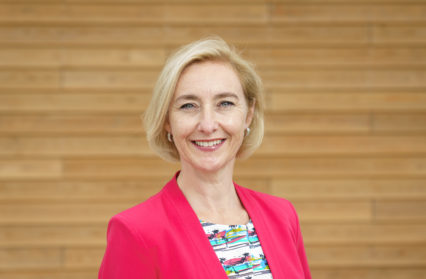
 Enjoyed this article? Support our writers directly by buying them a coffee and clicking this link.
Enjoyed this article? Support our writers directly by buying them a coffee and clicking this link.